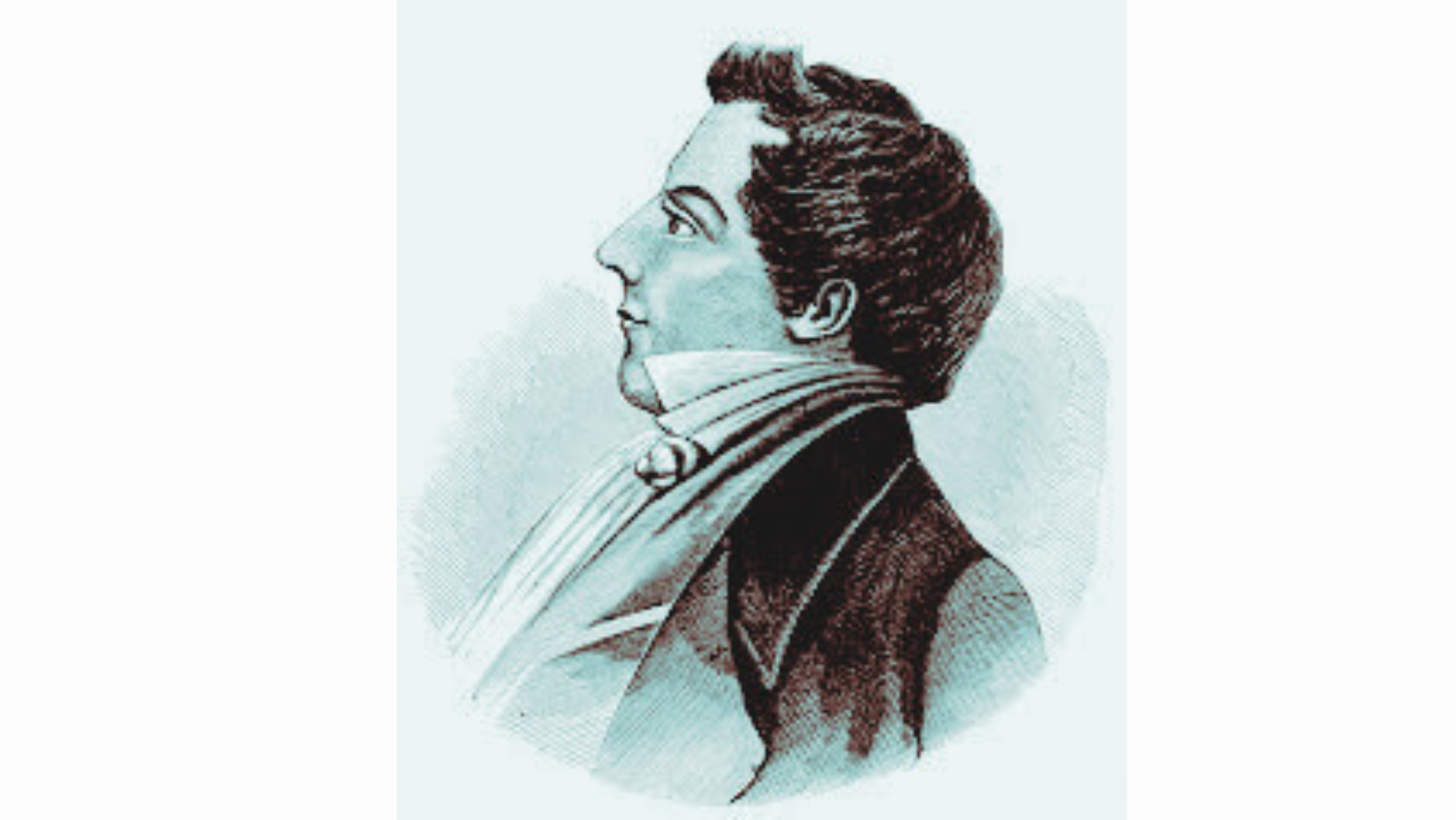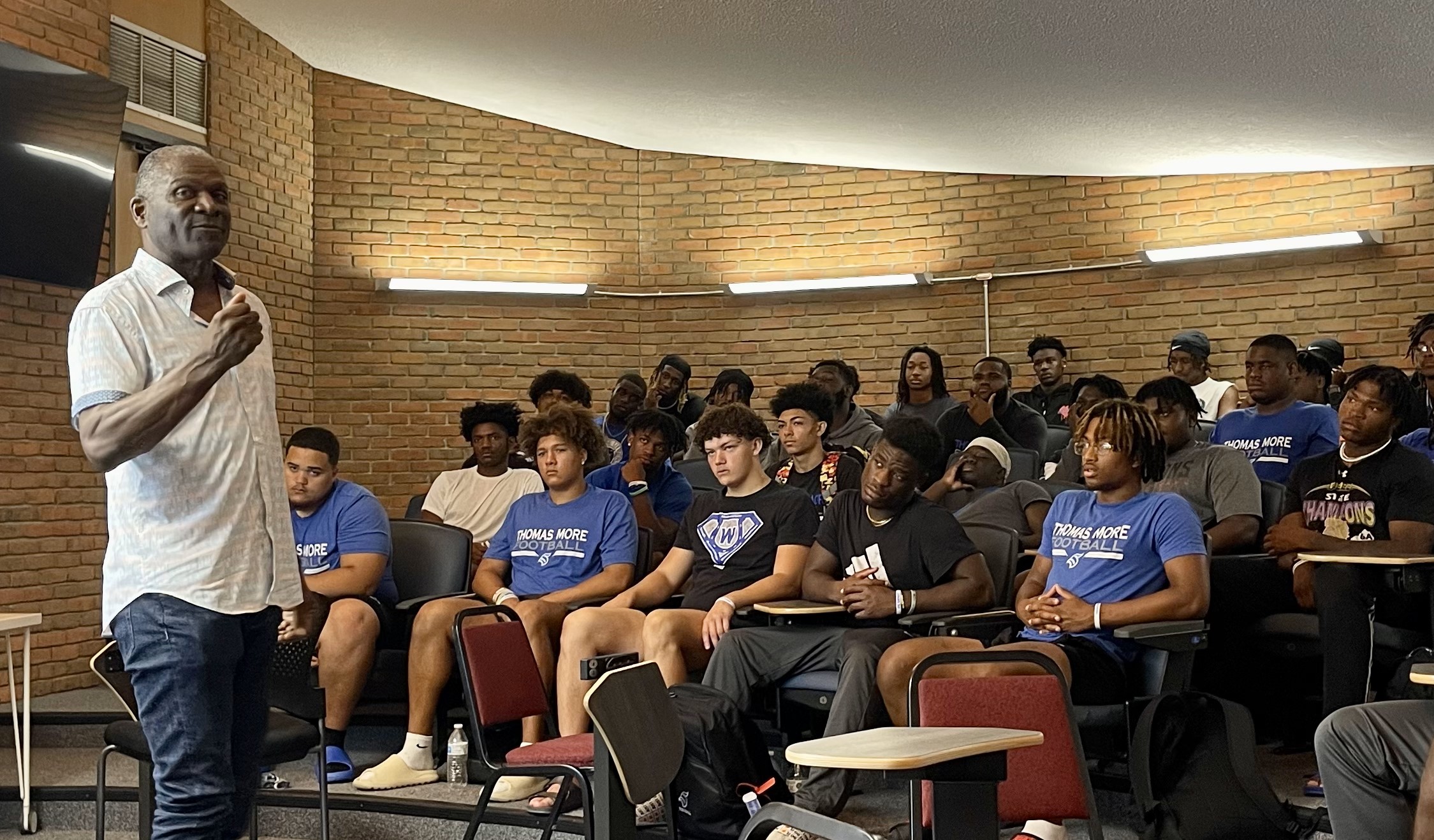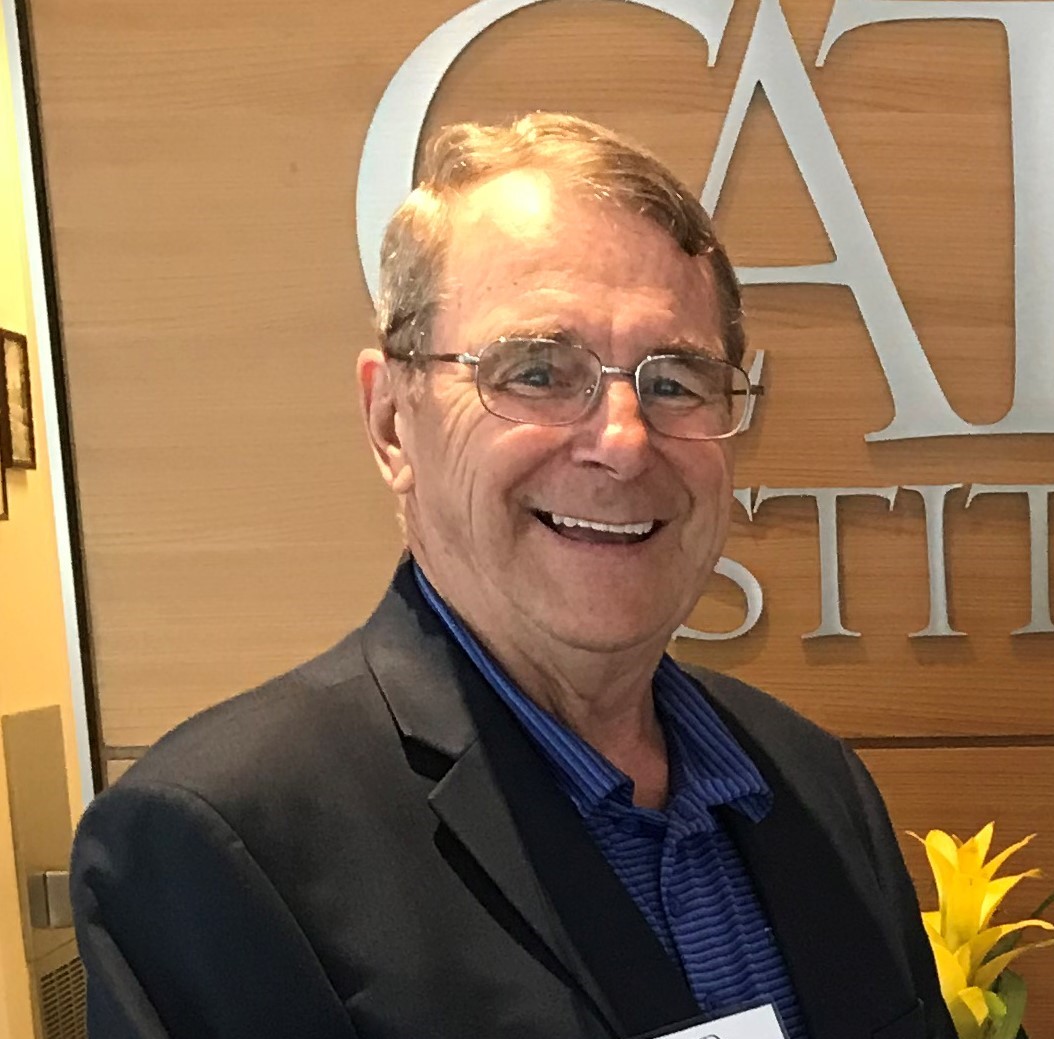What Religion Did Thomas More Believe In?
Many people find themselves wondering about the deeply held beliefs of historical figures, especially those who made a significant mark on the world. It’s pretty natural, you know, to be curious about what truly motivated someone, what guided their choices, and what they believed in, particularly when those beliefs shaped their destiny. Thomas More, a prominent English statesman, lawyer, social philosopher, humanist, and Catholic martyr, certainly fits this description. His story, frankly, is one where personal conviction and public duty clashed in a way that had profound consequences.
When we think about someone like Thomas More, his faith was, in a way, the very core of his being. It wasn't just a label; it was a living, breathing part of his everyday existence and his outlook on the world. His actions, his writings, and ultimately, his fate were all very much tied to his spiritual convictions. So, if you're asking, "What religion did Thomas More believe in?" you're really getting to the heart of what made him who he was, and what led to his tragic end.
Understanding his religious stance helps us grasp the historical period he lived in, a time of massive religious upheaval and change in England. His story, you see, offers a powerful look at what it means to stand by your beliefs, even when facing extreme pressure. We will explore the specifics of his faith, how it influenced his life, and the critical moments where his convictions were put to the ultimate test, providing a clear picture of his spiritual home.
Table of Contents
- Thomas More: A Brief Life
- The Foundation of Thomas More's Faith
- Catholicism in Thomas More's Era
- The Clash of Faith and Crown
- Thomas More's Martyrdom and Legacy
- Frequently Asked Questions
- Conclusion: A Man of Unwavering Belief
Thomas More: A Brief Life
Before we truly get into Thomas More's religious beliefs, it helps, you know, to have a quick overview of his life. He was born in London in 1478, a son of a successful lawyer. From a pretty young age, he showed a remarkable intellect and a deep sense of moral purpose. He received a fine education, studying at Oxford and then at Lincoln's Inn, where he trained in law. His career saw him rise through the ranks of public service, eventually becoming Lord Chancellor of England, a truly powerful position, for King Henry VIII.
More was, in a way, a true Renaissance man, deeply involved in humanism, a movement that valued classical learning and human potential. He was a close friend of the famous scholar Erasmus, and he wrote his own significant works, including "Utopia," a book that, you know, described an ideal society. His life was, in some respects, a blend of public service, scholarly pursuits, and, as we will see, profound personal piety. It's quite something, really, how he managed all these different aspects of his life.
Personal Details and Bio Data of Thomas More
| Detail | Information |
|---|---|
| Full Name | Sir Thomas More |
| Born | February 7, 1478, London, England |
| Died | July 6, 1535, Tower Hill, London, England (executed) |
| Nationality | English |
| Occupation | Lawyer, Social Philosopher, Humanist, Statesman, Lord Chancellor |
| Known For | Author of "Utopia," his refusal to accept the Act of Supremacy, his martyrdom |
| Religious Affiliation | Catholicism |
| Canonized | May 19, 1935, by Pope Pius XI |
| Feast Day | June 22 (Catholic Church) |
The Foundation of Thomas More's Faith
So, what religion did Thomas More believe in? The answer is clear: Thomas More was, without a doubt, a devout Roman Catholic. His belief system was, in a way, deeply rooted in the traditions and teachings of the Catholic Church, which, as a matter of fact, was the established Christian faith across Western Europe for centuries before the Reformation. For More, religion wasn't just a set of rules; it was, quite literally, human beings’ relation to that which they regard as holy, sacred, absolute, spiritual, divine, or worthy of especial reverence, as our text suggests. This understanding shaped his entire outlook.
His Catholic faith meant a commitment to worship, moral conduct, and right belief, as our text mentions. He participated regularly in Mass, prayed often, and practiced personal asceticism, like wearing a hair shirt beneath his clothes. These actions show a man who took his faith very seriously, not just as a public display but as a private, deeply personal connection. He believed, as many Catholics did then and now, in the teachings of the Pope as the head of the Church, and in the sacraments as channels of grace.
The meaning of religion for More was, essentially, an institutionalized system of religious attitudes, beliefs, and practices, but also a very personal set of them. He found, you know, answers to questions about the origin, nature, and purpose of existence within his Catholic worldview, which included a belief in supernatural entities, such as God and the saints, who have power. His reliance on sacred texts, like the Bible, provided guidance for his religious belief and practice, his understanding of law and government, and even his daily living, as our text points out. He was, in short, a man whose life was thoroughly integrated with his spiritual convictions.
Catholicism in Thomas More's Era
To truly appreciate Thomas More's stance, we need to understand the religious landscape of his time. In the early 16th century, Christianity was, as our text notes, the most widely practiced religion in the world, with more than 2 billion followers today, and Catholicism was the dominant form of Christianity in England. The Christian faith, in general, centers on beliefs regarding the birth, life, and death of Jesus Christ, and for Catholics, this included a strong emphasis on the Church's authority, tradition, and the role of the Pope.
The Church, in that period, was, in some respects, a unified system of thoughts, feelings, and actions that was shared by a group, giving its members an object of devotion, someone or something to revere. This meant that religious belief was, you know, deeply intertwined with daily life, culture, and even government. The Pope in Rome held, essentially, spiritual authority over all of Christendom, and this authority was, for Catholics like More, a fundamental aspect of their faith. Sacred texts, like the Latin Vulgate Bible, were central, providing the scriptures that guided belief and practice.
However, the early 1500s also saw the beginnings of the Protestant Reformation, a movement that challenged many of the Catholic Church's doctrines and practices. Figures like Martin Luther and John Calvin began to advocate for different interpretations of Christian belief, leading to a split within Christianity. This context is, you know, absolutely vital for understanding the pressures Thomas More faced, as his unwavering commitment to Catholicism put him directly at odds with the changing religious tide in England, especially when King Henry VIII decided to break away from Rome.
The Clash of Faith and Crown
Thomas More's deep Catholic faith became the central point of conflict with King Henry VIII. The King, you see, wanted to annul his marriage to Catherine of Aragon, primarily because she had not produced a male heir to the throne. When the Pope refused to grant the annulment, Henry VIII, in a rather dramatic move, decided to assert his own authority over the Church in England. This led to a series of acts, most notably the Act of Supremacy in 1534, which declared the King, not the Pope, to be the supreme head of the Church of England.
For Thomas More, this was, quite frankly, an impossible situation. His entire understanding of religion, as human beings' relation to that which they regard as holy, meant recognizing the Pope's spiritual authority. He saw the King's claim as a direct challenge to what he believed was God's established order for the Church. His conscience, you know, simply would not allow him to take an oath acknowledging the King's supremacy over the Pope. This wasn't, as a matter of fact, a political choice for him; it was a deeply spiritual one, rooted in his core beliefs about right belief and moral conduct.
More tried to avoid direct confrontation, resigning from his position as Lord Chancellor and living a quiet life. However, his refusal to swear the oath was seen as an act of defiance against the King. He was, therefore, arrested and imprisoned in the Tower of London. Even under immense pressure, and with the knowledge that his life was at stake, he held firm to his Catholic convictions. His refusal was, essentially, a testament to the power of his personal set of religious attitudes, beliefs, and practices, which, for him, superseded any earthly authority. This period, you know, really shows the strength of his spiritual commitment.
Thomas More's Martyrdom and Legacy
Thomas More's unwavering commitment to his Catholic faith ultimately led to his execution on July 6, 1535. He was convicted of treason for refusing to accept the Act of Supremacy. His final words on the scaffold are famously reported as stating that he died "the King's good servant, but God's first." This sentiment, you know, perfectly encapsulates his belief that his loyalty to God and the Catholic Church came before any loyalty to his sovereign, when those two loyalties conflicted. His death, in some respects, became a powerful symbol of religious conviction.
His execution sent shockwaves across Europe, and he was quickly revered as a martyr by many Catholics. For them, he embodied the ideal of standing firm in one's faith, even unto death. The belief in and worship of God, or any such system of belief and worship, was for More, a matter of ultimate importance, as our text suggests. His story, you see, became a powerful example of how religion can provide guidance for religious belief and practice, and how individuals might interpret their duties to God versus the state.
Centuries later, in 1935, Thomas More was canonized as a saint by the Catholic Church, officially recognizing his martyrdom and his steadfastness in faith. He is now honored as Saint Thomas More, the patron saint of statesmen, politicians, and lawyers. His life continues, you know, to inspire people who face difficult moral choices, reminding us that sometimes, personal belief can be a force strong enough to challenge even the most powerful rulers. His legacy is, frankly, about the enduring power of faith and conscience.
Frequently Asked Questions
People often have questions about Thomas More's beliefs and the events surrounding his life. Here are a few common ones:
Was Thomas More a Catholic?
Yes, absolutely. Thomas More was, as a matter of fact, a deeply committed and devout Roman Catholic his entire life. His refusal to accept King Henry VIII as the head of the Church of England stemmed directly from his belief in the Pope's spiritual authority and the traditional teachings of the Catholic Church. His faith was, you know, the very reason for his conflict with the King and ultimately, his execution. He saw himself as upholding the true Christian faith, as he understood it through Catholic doctrine.
Why was Thomas More executed?
Thomas More was executed for treason. The specific charge was his refusal to swear an oath to the Act of Supremacy, which declared King Henry VIII the supreme head of the Church of England, effectively breaking away from papal authority. More believed, you see, that the King did not have the right to claim such spiritual power, and that doing so went against divine law and the established order of the Church. His silence and refusal to explicitly endorse the Act were, basically, interpreted as treason by the crown, leading to his trial and beheading.
What was Thomas More's view on the King's supremacy?
Thomas More fundamentally rejected the King's supremacy over the Church. He believed that the Pope, as the successor of Saint Peter, held legitimate spiritual authority over the universal Church, a belief central to Catholic doctrine. For More, the King's attempt to declare himself head of the Church was, frankly, an unprecedented and unlawful usurpation of spiritual power. He felt, you know, that such a claim was contrary to the centuries-old tradition of the Church and God's own design. His steadfast opposition to the King's religious claims, rather than any political opposition, was the core of their disagreement.
Conclusion: A Man of Unwavering Belief
So, when we ask "What religion did Thomas More believe in?", the answer is undeniably Roman Catholicism. His life, you know, stands as a powerful example of a person whose faith was not just a private matter but the guiding principle for his public actions and moral choices. His story is a poignant reminder of a time when religious belief was so deeply woven into the fabric of society that it could lead to profound personal sacrifice, even death.
Thomas More's adherence to his Catholic faith was, essentially, a commitment to a unified system of thoughts, feelings, and actions, shared by a group, that gave its members an object of devotion. This system, for him, answered core questions about existence and provided a framework for moral conduct and right belief. His refusal to compromise his spiritual convictions, even when faced with the power of the King, shows a remarkable strength of character and a deep devotion to what he regarded as holy and sacred. His legacy, in some respects, continues to resonate, reminding us about the enduring power of conscience and belief.
If you're interested in learning more about the historical context of religious changes in England, you can explore resources like the English Reformation. And, you know, to discover more about figures who shaped religious thought, learn more about on our site. You might also find other stories of historical figures who faced similar dilemmas on this page , which, as a matter of fact, offers even more fascinating insights.

What Did Thomas Hobbes Believe About Human Nature: Unmasking Humanity's

FORMER BENGAL VISITS THOMAS MORE UNIVERSITY FOOTBALL PLAYERS – MOREOVER

THOMAS MORE UNIVERSITY PROFESSOR NAMED A 2022 NEWSMAKER – MOREOVER